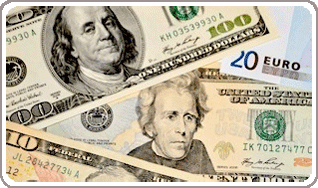

How to Improve Your Credit Score
- 1. Open more credit cards
- 2. Don't pay off a closed credit card
- 3. Add an installment loan to the mix
- 4. Pay down your credit cards
- 5. Check your limits
- 6. Dust off an old card
- 7. Ask your lender for some “good will”
- 8. Dispute old negatives
- 9. Dispute errors
Improving your score involves a pretty basic technique: Pay all your bills on time, stay well under your credit limits, and keep accounts in good standing over many years.
However, here are some additional tips on improving your credit score relatively quickly.
1. Open more credit cards
For years, experts warned that opening new credit cards hurts your credit score -- not to mention enabling you to run up huge debts. That's still true. Having four or five credit cards is better than having just one or two.
With credit card issuers lowering credit limits, having too few credit cards puts a much more important credit-score component at risk: credit utilization, or how much of your available credit you're using. If you have just two cards, now is the time to open a third. But wait at least six months to a year before applying for a fourth card.
2. Don't pay off a closed credit card
If you closed an account before the Credit CARD Act took effect to opt out of a rate hike, or have closed one since, you may not want to rush to pay the balance to zero.
FICO counts the credit limits of closed accounts toward utilization ratios only as long as there's a balance on that account. As a result your credit score drops.
3. Add an installment loan to the mix
If you don't already have an installment loan on your credit reports, consider adding a small personal loan that you can pay back over time This will get you the fastest improvement in your scores if you show you're responsible with both major kinds of credit: revolving (credit cards) and installment (personal loans, auto, mortgages and student loans).
4. Pay down your credit cards
Paying off your installment loans (mortgage, auto, student, etc.) can help your scores but typically not as dramatically as paying down revolving accounts such as credit cards. Getting your balances below 30% of the credit limit on each card can really help improve your credit score. Remember to pay down the cards that are closest to their limits.
5. Check your limits
Your scores might be artificially depressed if your lender is showing a lower limit than you've actually got Asking the lender to correct this error will help improve your credit score.
6. Dust off an old card
The older your credit history, the better. But if you stop using your oldest cards, the issuers may decide to close the accounts or stop updating them to the credit bureaus. The accounts may still appear, but they won't be given as much weight in the credit-scoring formula as your active accounts.
So you might want to charge a recurring bill to one of those little-used accounts. Be sure to off the balance in full however.
7. Ask your lender for some “good will”
If you've been a good customer, a lender might agree to simply erase that one late payment from your credit history. You usually have to make the request in writing, and your chances for a "goodwill adjustment" improve the better your record with the company. If you have made a series of 12 or so payments on time, you may get a lender to erase previous delinquencies if you ask that the account be “re-aged.
8. Dispute old negatives
If you have an old collection account in your file, you can protest that the charge was unjust, or you can try disputing the account with the credit bureaus as "not mine." The older and smaller a collection account, the more likely the collection agency won't bother to verify it when the credit bureau investigates your dispute.
You may have good luck disputing old items with a lender that has merged with another company, which can leave lender records a real mess.
9. Dispute errors
Always dispute late payments, charge-offs, collections or other negative items that aren't yours.
Look for credit limits reported as lower than they actually are. Also accounts listed as "settled," "paid derogatory," "paid charge-off" or anything other than "current" or "paid as agreed" if you paid on time and in full are worthwhile items correct.
© 2011-2012 Checkcredit.com. All rights reserved
